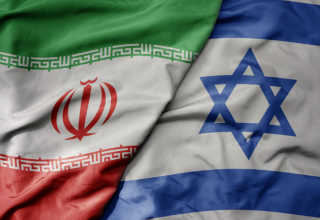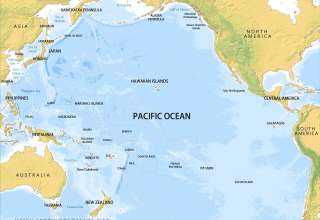This information came from GetUp!
Actual logo image from the US Trade Representative office (we kid you not).
This “Made in America” logo for the Trans-Pacific Partnership (TPP) tells us everything we need to know about who it benefits. American multinational corporations, who’ll soon have the power to sue our government over laws that protect our health and environment.
But if the TPP was ‘Made in America’, then it can be unmade there. Our campaign allies in the US told us if we help them move just six votes out of 435 in the US Congress, then the TPP will go down. And if it fails there, it fails utterly, because America is the linchpin of the whole deal.
And in breaking news, one member of Congress just backflipped on the TPP, which means we only need five more. So we’re working on a bold and cunning newspaper ad campaign targeting those critical votes. We even have to keep the details secret, because if our targets got wind of what we were up to, it might not work.
What we can tell you is our allies in the US think it’s a cracker idea and they’re ready to amplify its power through their own media contacts. But they say we have to get in the papers next week, to pick up on the building momentum against the TPP.
Can you chip in to get strategic ads in US newspapers next week to help turn five critical votes against the TPP?
With the full text of the TPP finally out in the open, we now know it includes ISDS provisions that hand foreign companies the right to sue our governments over laws that protect our health and environment.1 And it locks in the ability of our internet service providers to spy on us over possible copyright infringement.2
Oh, and those supposed benefits? America’s own Department of Agriculture says the TPP will increase Australia’s GDP 0.00% by 2025 (no, that’s not a typo).3
Here in Australia, the government will need Labor’s vote to get the deal over the line. Disturbingly, Labor welcomed its potential benefits when the final TPP text was released last week. That’s why our surest bet is to make a big, clever intervention in the US to bring down the TPP from within.
After so many years of secrecy surrounding the TPP, it’s only fair that our plan to stop it is a bit hush-hush. But here’s what we can say. The ad campaign is designed to use the power of corporate America against itself. That’s why they can’t know what we’re up to, or it could all fall over.
The key groups we’re working with in the US have been fighting the TPP for years. They’ve walked the halls of Congress and are giving great advice on who to target, what to say and where to advertise for maximum impact. The final vote could all come down to 1 or 2 people that we help change.
References
[1] TPP trade deal: text published online, The Guardian, 6 November 2015
[2] TPP text favours corporate rights over citizens and communities, Australian Fair Trade and Investment Network media release, 5 November 2015
[3] Agriculture in the Trans-Pacific Partnership, Table 8, p21
Find out what this deal could mean for you and your family, then sign the petition calling on Parliament to block the TPP!
http://www.youtube.com/watch?v=E2Tk6tXwrfA
Trade Minister Andrew Robb has finally released the text of the Trans-Pacific Partnership (TPP) deal, and now we know why he kept it so secret for so long.
Just as we feared, the TPP is bad news for democracy, as it will allow multinational corporations to sue our government over laws that protect our health and our environment.
But it’s not over yet. We still have a chance to derail the secretive TPP agenda when it’s put to a vote in the Senate.
Will you join over 125,000 Australians calling on Parliament to block the TPP, by signing the petition now?
By building enough political pressure, we can show politicians that Australians won’t stand by while our rights are signed away.
Get the facts on the TPP
What exactly is the Trans-Pacific Partnership (TPP)?
The Trans-Pacific Partnership (or “TPP” as it’s known) is a major trade deal between Australia and 11 other countries. The deal accounts for 800 million people and 40 per cent of the world’s economy – making it one of the world’s largest trade deals.
Australia joined the TPP negotiations in 2011 under the Gillard Government, and negotiations have since continued under the Coalition Government, which have been largely led by the US. Negotiations concluded on 5 October 2015 in Atlanta, US.
The 12 negotiating countries are Australia, the US, New Zealand, Canada, Japan, Singapore, Vietnam, Malaysia, Brunei, Chile, Mexico, and Peru.
What’s in it for Australians?
The Coalition Government claims the TPP would open up trade and investment opportunities for Australia in the Asia-Pacific region, by reducing barriers for Australian exporters.
However, the deal has a number of nasty provisions that will impact Austalia’s environment, health, internet freedom and workers rights standards.
What’s Investor-State Dispute Settlement (ISDS)?
Investor-State Dispute Settlement (ISDS) is a provision that allows a foreign corporation to sue governments for policy decisions they believe harm their investments.
ISDS can be used for very legitimate purposes, for example if a government was to nationalise a private company – but it could also be used to sue governments for actions taken in the public interest, such as banning harmful pesticides, or placing a moratorium on fracking to protect water resources.
The risks of ISDS aren’t merely hypotheticals, we’re already seeing them played out in countries like Canada, El Salvador and even right here in Australia.
What’s so bad about Investor-State Dispute Settlement (ISDS)?
A case brought against an Australian government through ISDS, wouldn’t be carried out in the courts, but rather through private arbitration tribunals comprised of corporate lawyers. As a result, ISDS cases lack the standards of national legal systems, such as precedents and appeals.
And ISDS cases are expensive to defend. A 2012 OECD study found that ISDS cases usually last between three to five years, racking up a legal bill of US$8 million on average. This may have to be paid even if the government wins the case. The case brought by tobacco corporation, Philip Morris, over Australia’s plain-packaging laws has already cost Australian taxpayers AUD$50 million.
But are ISDS provisions necessary?
The Productivity Commission found in their June report that “ISDS protections are not necessary or sufficient to foster investment flows between developed countries with transparent and well-functioning legal systems”
Back in 2011, the Commission even went so far as to recommend the government “seek to avoid” the inclusion of ISDS in all future trade deals.
How will the TPP affect environmental protections?
The TPP was billed as having environmental standards that would be ground-breaking for a trade deal, but the text reveals it doesn’t even mention climate change!
What’s more, giving multinational corporations the power to sue our governments for creating new laws, could inhibit their ability to govern in the public interest.
For example, if a state government placed a ban on coal seam gas fracking, because it was contaminating water tables, the fracking company could sue the government and force Australian taxpayers to cover the cost of lost profits.
We’ve already seen scenarios like this played out in countries around the world, such as in El Salvador, where a Canadian company (now Australian-owned) is suing the government for $315 million in “loss of future profits” because local citizens won a hard-fought campaign against a gold mine that threatened to contaminate their water supplies. The Australian company is continuing to pursue the case.
How will the TPP increase the cost of medicines?
The US Big Pharmaceutical lobby pushed for an extension of data exclusivity period for medicines. Before a new medicine is manufactured, it undergoes extensive testing to ensure it’s safe.
Generic medicine manufacturers currently need to wait five years before they can access this data to produce more affordable versions of the medicine.
The US wanted to increase this period from five to eight years, which would delay the introduction of cheaper generic medicines into the market, making medicines more expensive for Australians.
The text of the deal reveals that Australia has committed to use administrative and other processes to eventually reach the eight year waiting period that the US demanded.
How will the TPP put public health at risk?
In 2011 the Australian Government introduced plain-packaging laws to prevent young people from taking up smoking.
But now, US tobacco giant Philip Morris, is using a similar ISDS clause from an Australia-Hong Kong treaty to sue the government for millions of dollars in damages.
ISDS clauses are included in the TPP agreement, so US corporations can sue Australian governments over laws that affect their profits.
How will the TPP reduce protections for workers?
ISDS provisions can also harm added protections for workers. The Egyptian Government is being sued under ISDS provisions for raising the minimum wage.
How will the TPP threaten internet freedom?
Your internet service provider could be forced to spy on you and dob you in for possible copyright infringement.
We all know piracy is illegal, but this treaty gives US companies the power to pull strings that could make heavy-handed spying, fines, internet service disconnection and even criminal charges the norm for even the most minor and potentially unintentional infringements.
How could the TPP affect my family?
Find out what this deal could mean for you and your family.




